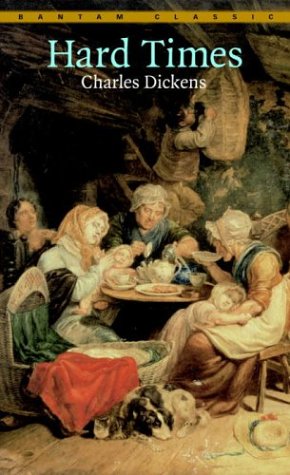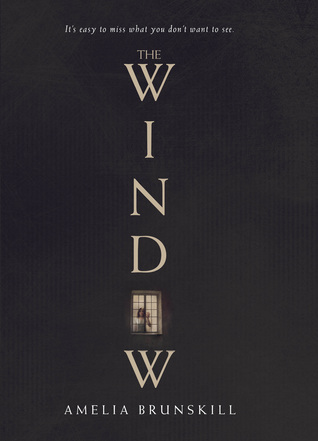[button color=”black” size=”big” link=”http://affiliates.abebooks.com/c/99844/77798/2029?u=http%3A%2F%2Fwww.abebooks.com%2Fservlet%2FSearchResults%3Fisbn%3D9780553210163″ target=”blank” ]Purchase here[/button]
Hard Times
by Charles Dickens
Dickens’s shortest novel is set in the age of the Industrial Revolution, when industrialists made their fortune while the laborers who worked for them slaved in dangerous and unhealthy conditions. It is set in the Age of Reason, when the prevailing philosophy of the day held that the only motive that really mattered to people was Self-Interest, and that the only thing people should be allowed to believe in from the cradle upward is pure, unadulterated Fact.
Enter Mr. Thomas Gradgrind, who has raised his five children along these strict, utilitarian lines. The choice results of his experiment are Louisa, who marries a blustering tycoon she does not love and is tempted within an inch of adultery by an immoral playboy; and Thomas Jr., also known as “the whelp,” who sullenly exploits everyone for his own pleasure, and who finally brings the deepest shame and heartbreak on the family.
Tightly plotted, with an economy of words, incidents, and characters that is not typical of Dickens, Hard Times is partly a critique of a political and economic movement that was taking England by storm in the 1850s, and partly a demonstration of Dickens’s belief that children need wonder in their lives — fairy tales, make-believe, fancy — and that the hard-working people need recreational pursuits to beguile their time off and relieve the tedium and stress of their workaday lives. This pitted Dickens against temperance (anti-alcohol) activists and Sabbatarians (who demanded that nothing should be allowed to go on, on Sundays, except church services). He also bashes both sides in the corruption-contest between organized labor and their industrialist employers, and lambastes the unjust system that made divorce legal only for the very rich.
For such a socially conscious, agenda-driven book, it is also a surprisingly human story about the blighted hearts of Louisa and Tom, and the saving grace of the abandoned clown’s daughter Sissy Jupe. You will pity and love Rachael and Stephen, not to mention Sissy. You will loathe and despise Bounderby, Harthouse, Bitzer, and Mrs. Sparsit. You will be stunned by the death scene of Mrs. Gradgrind, thrilled by the revelation of Mrs. Pegler’s true identity, and moved by the final scene between the honest workman who was unjustly accused of a bank robbery, and the woman who loved him. And finally, you will laugh out loud at Mr. Sleary of the horse-riding circus, who is both screamingly funny and deeply touching. Sleary provides both the comic relief this story so desperately needs and the final proof in evidence that people need amusements and popular distractions, diversions for reality, play and fun and “wonder” — to use, not abuse — in order to be the best students, the best workers, the best citizens, and the best human beings they can be.
This flies right in the face of uppity literary critics and downity religious fanatics, who would like nothing better than to squash the Harry Potter phenomenon. So, all the more reason for J.K. Rowling fans to become acquainted with Charles Dickens!


